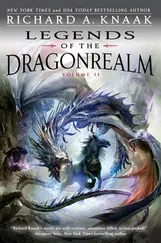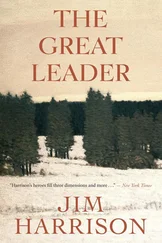Jim Harrison - Legends of the Fall
Здесь есть возможность читать онлайн «Jim Harrison - Legends of the Fall» весь текст электронной книги совершенно бесплатно (целиком полную версию без сокращений). В некоторых случаях можно слушать аудио, скачать через торрент в формате fb2 и присутствует краткое содержание. Жанр: Классическая проза, на английском языке. Описание произведения, (предисловие) а так же отзывы посетителей доступны на портале библиотеки ЛибКат.
- Название:Legends of the Fall
- Автор:
- Жанр:
- Год:неизвестен
- ISBN:нет данных
- Рейтинг книги:5 / 5. Голосов: 1
-
Избранное:Добавить в избранное
- Отзывы:
-
Ваша оценка:
- 100
- 1
- 2
- 3
- 4
- 5
Legends of the Fall: краткое содержание, описание и аннотация
Предлагаем к чтению аннотацию, описание, краткое содержание или предисловие (зависит от того, что написал сам автор книги «Legends of the Fall»). Если вы не нашли необходимую информацию о книге — напишите в комментариях, мы постараемся отыскать её.
Legends of the Fall — читать онлайн бесплатно полную книгу (весь текст) целиком
Ниже представлен текст книги, разбитый по страницам. Система сохранения места последней прочитанной страницы, позволяет с удобством читать онлайн бесплатно книгу «Legends of the Fall», без необходимости каждый раз заново искать на чём Вы остановились. Поставьте закладку, и сможете в любой момент перейти на страницу, на которой закончили чтение.
Интервал:
Закладка:
By first light the wind blew hard against the yellowed aspens, the leaves skittering across the high pasture and burying themselves in a draw. When they forded their first river the leaves of the cottonwoods stripped by the wind caught in the eddies, pasting themselves against the rocks.
They paused to watch a bald eagle, forced down by the first snow in the mountains, fruitlessly chase a flock of mallards in the brakes. Even in this valley they could hear the high clean roar of wind against cold rock above the timberline.
By noon they crossed a divide, a cordillera, and turned to take a last view of the ranch. That is, the brothers took in the view not the less breathtaking in the raw wind which blew the air so clean the ranch looked impossibly close and beautiful though already twenty miles distant. Not One Stab, though, who feared sentiment and who stared straight up in disdain when they crossed the railroad tracks of the Northern Pacific. And a little further on when they all heard the doleful cry of a wolf at midday, they pretended that they had not heard it for the cry at midday was the worst of omens. They took lunch as they rode as if to escape the mournful sound and not wanting to sit at the edge of a glade where the sound might descend on them again. Alfred, the oldest brother, said a prayer while Tristan, the middle brother, cursed and spurred his mount past Alfred and One Stab. Samuel, the youngest, dallied along with his eyes sharp on the flora and fauna. He was the apple of the family's eye, and at eighteen already had one year in at Harvard studying in the tradition of Agassiz at the Peabody Museum. When One Stab paused at the far edge of a great meadow to wait for Samuel to catch up, his heart froze on seeing the roan horse emerge from the woods with its rider carrying half a bleached buffalo skull against his face and his laughter carrying across the meadow to the old Indian.
On the third day of their trip the wind let up and the air warmed, the sun dulled by an autumnal haze. Tristan shot a deer to the disgust of Samuel who only ate the deer out of instinctive politeness. Alfred, as usual, was ruminative and noncommittal, wondering how One Stab and Tristan could eat so much meat. He preferred beef. When Tristan and One Stab ate the liver first Samuel laughed and said he himself was an omnivore who would end up as a herbivore, but Tristan was a true carnivore who could store up and either ride or sleep or drink and whore for days. Tristan gave the rest of the carcass to a honyocker, a homesteader, whose pitiful barn they slept in that night preferring the barn to the dense ammoniac smell of the cabin full of children. Typically the honyocker did not know there was a war going on in Europe, much less owning any firm notion where Europe was. Untypically Samuel took a liking at dinner to the oldest daughter and quoted a verse of Heinrich Heine to her in German, her native language. The father laughed, the mother and daughter left the table in embarrassment. At dawn when they left the daughter gave Samuel a scarf she had spent the night knitting. Samuel kissed her hand, said he would write, and gave her a gold pocket watch for safekeeping. One Stab watched this from the corral when he saddled the horses. He picked up Samuel's saddle as if he were picking up doom herself, doom always owning the furthest, darkest reaches of the feminine gender. Pandora, Medusa, the Bacchantes, the Furies, are female though small goddesses beyond sexual notions. Who reasons death anymore than they can weigh the earth or the heart of beauty? They rode the rest of the way into Calgary in the full flower of a brief Indian summer. There was a bad incident at a roadside tavern where they tethered their horses to have a beer to cut their dusty mouths. The owner refused to let One Stab inside. Samuel and Alfred reasoned with the owner, then Tristan entered after watering the horses, sized up the situation and pummeled the beefy tavern owner senseless. He flipped a gold piece to the porter who nervously held a pistol, took a bottle of whiskey and a pail of beer and they had a picnic under a tree outside. Alfred and Samuel shrugged, long accustomed to their brother's behavior. One Stab liked the taste of beer and whiskey but would only rinse his mouth with it before spitting it on the ground. He was a Cheyenne, but had spent his last thirty years in Cree and Blackfoot territory and had decided he would only get drunk if he ever returned to Lame Deer before he died. His spitting brought laughter from Samuel and Alfred but not Tristan who understood and had been close to One Stab since the age of three while Samuel and Alfred tended to ignore the Cheyenne.
In Calgary they were given an uncommon welcome for enlistees. The major forming the local cavalry came from the same area of Cornwall as their father, in fact, he shipped out of Falmouth on a schooner the same year, but for Halifax rather than Baltimore. The major was baffled by the refusal of the United States to enter the war, which he accurately saw as more monstrous and enduring than reflected in the easy optimism of those Canadians who envisioned the Kaiser and his Huns in flight the moment the locals landed on the Continent. But then such simpleminded braggadocio is appreciated in soldiers, who are largely cannon fodder for international economic and political machinations. In the month of training before shipping by train to the troopships in Quebec, Alfred quickly became an officer, Samuel an aide-de-camp due to his scholarly German and ability to read topographical maps. Tristan, however, brawled and drank and was demoted to wrangling the horses, where he in fact felt quite comfortable. Uniforms embarrassed him and the drills bored him to tears. Were it not for his fealty to his father and his notion that Samuel needed looking after he would have escaped the barracks and headed back south on a stolen horse on the track of One Stab.
Back near Choteau, William Ludlow (Colonel, Engineers U, Army. Ret.) spent sleepless nights. He had taken a chill the morning the boys left and spent a week in bed staring out the north window waiting for One Stab to return with some news however feeble and scanty the news would be. He wrote long letters to his wife who wintered in Prides Crossing north of Boston, also keeping a house on Louisberg Square for her evenings at the opera or symphony. She loved Montana from May through September, but equally loved to board the train back to the civilities of Boston, not an uncommon thing for rich landholders in those days. Against the popular misconception, cowboys never did own ranches. They were not much more than the expert, wandering hippies of their day, cossacks of the range who knew animals much better than each other. Some of the grandest ranches in north central Montana were actually owned by largely absentee Scottish and English noblemen. (A loutish Irishman, Sir George Gore, of suspicious noble birth had enraged the Indians by killing a thousand elk and an equal number of buffalo on a "sporting" trip.)
But Ludlow wrote his wife in a state of grief. She had insisted that Samuel be kept from the war. The year before she had cherished their Saturday lunches in Boston, talking of his always exciting past week at Harvard. She had babied her last born while Alfred had been stodgy and methodical from youth and Tristan uncontrollable. In September, a month after Sarajevo, she had quarreled with her husband then left after the three days it took to pack. Now Ludlow knew he should have kept Samuel and sent him back to Harvard if only to please his mother. The young second cousin, Susannah, she had brought from the East in hopes that Alfred would make a good marriage, had instead become engaged to Tristan. This amused Ludlow who secretly favored Tristan's misbehavior even though after the engagement dinner Tristan inexcusably disappeared with One Stab for a week on the track of a grizzly that had taken two cattle.
Читать дальшеИнтервал:
Закладка:
Похожие книги на «Legends of the Fall»
Представляем Вашему вниманию похожие книги на «Legends of the Fall» списком для выбора. Мы отобрали схожую по названию и смыслу литературу в надежде предоставить читателям больше вариантов отыскать новые, интересные, ещё непрочитанные произведения.
Обсуждение, отзывы о книге «Legends of the Fall» и просто собственные мнения читателей. Оставьте ваши комментарии, напишите, что Вы думаете о произведении, его смысле или главных героях. Укажите что конкретно понравилось, а что нет, и почему Вы так считаете.











